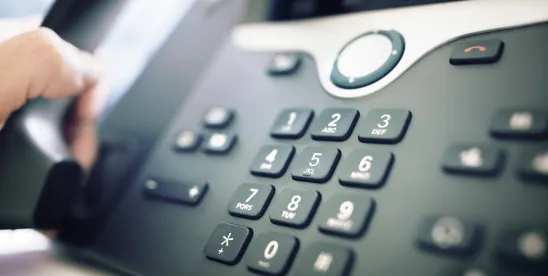A district court from the Central District of California cast its lot against the growing argument that federal courts lack jurisdiction over TCPA claims based on conduct that occurred when the government debt exception was part of the statute. See Shen v. Tricolor California Auto Group, LLC, No. 20-7419, 2020 WL 7705888, at *1 (C.D. Cal. Dec. 17, 2020).
As our regular readers know, the government debt exception—a relatively new addition to the TCPA—was recently severed from the statute by the Supreme Court’s decision in Barr v. AAPC. Since, several federal district courts have questioned whether they may enforce the statute as to claims based on conduct that allegedly occurred while the exception was part of the statute, i.e. from November 2, 2015 through July 6, 2020. Shen v Tricolor California Auto Group LLCMost notably, the Eastern District of Louisiana concluded in Creasy v. Charter Communications that the Barr decision held that the TCPA was unconstitutional in its entirety during the pendency of the exception, that courts lack authority to enforce a constitutional statute, and that courts therefore cannot hear claims based on conduct during that period.
The plaintiff in Shen alleged that on May 6, 2020, he received a text message on his cell phone sent by defendant, and that he replied “STOP.” On May 28 and June 1, 2020, plaintiff received prerecorded calls to his cell phone from the defendant. Plaintiff did not allege that he received any calls or texts from defendant after June 1, 2020.
The defendant moved to dismiss under Federal Rule of Civil Procedure 12(b)(1), arguing that the court lacked jurisdiction because the calls and texts at issue were made prior to severance of the government debt exception by the Barr decision. The defendant argued that this severance applies only prospectively and does not allow for retrospective application of the remainder of the autodialer restrictions. Therefore, in its view, the TCPA was unconstitutional at the time plaintiff allegedly received calls or texts, and the court lacked jurisdiction to hear his claim.
The Shen court expressed skepticism that Rule 12(b)(1) was the proper vehicle for defendant’s motion. It explained that under Ninth Circuit and Supreme Court precedent, even if defendant was correct that the TCPA cannot be constitutionally applied to calls during the pendency of the exception, it had subject-matter jurisdiction because plaintiff’s claim was not frivolous and asserted a violation of a federal statute. The court also noted that the complaint asserted claims on behalf of a putative class with an alleged class period extending through the date of class certification—which would encompass a period of time after Barr severed the exception.
The court acknowledged that three district courts have accepted the defendant’s argument. But it criticized those decisions for dismissing dicta from Justice Kavanaugh’s plurality opinion in Barr that stated “our decision today does not negate the liability of parties who made robocalls covered by the robocall restriction.” The Shen court found that “Justice Kavanaugh’s resolution of the issue may not be binding on this Court, but it is persuasive.” On that basis, the court rejected defendant’s argument as “at odds with the majority of the Supreme Court’s Justices.” Accordingly, the court concluded plaintiff stated a viable claim over which the court possessed subject-matter jurisdiction, denied defendant’s motion under Rule 12(b)(1), and directed defendant to file an answer.
The Shen court is one of several federal district courts that have rejected the reasoning of the Creasy decision. See Abramson v. Federal Ins. Co., No. 19-2523 (M.D. Fla. Dec. 11, 2020); Buchanan v. Sullivan, No. 20-0301, 2020 WL 6381563, at *3 (D. Neb. Oct. 30, 2020); Burton v. Fundmerica, Inc., No. 19-0119, 2020 WL 4504303, at *1 n.2 (D. Neb. Aug. 5, 2020). Whether more district courts will follow or reject Creasy remains to be seen. But with at least two courts following Creasy, see Hussain v. Sullivan Buick-Cadillac-GMC Truck, Inc., No. 20-0038 (M.D. Fla. Dec. 11, 2020); Lindenbaum v. Realgy, LLC, No. 19-2862, 2020 WL 6361915 (N.D. Ohio Oct. 29, 2020), the argument that courts lack subject-matter jurisdiction for claims arising during the pendency of the government debt exception still has traction.
A separate but related issue to watch out for is whether defendants have success making a similar argument as a motion to dismiss for failure to state a claim under Rule 12(b)(6). Indeed, the Shen court hinted it may well have taken a different view if the argument had been made under Rule 12(b)(6) as opposed to 12(b)(1). See 2020 WL 7705888 at *2 (“[T[he Court is not convinced that Federal Rule of Civil Procedure 12(b)(1) is the correct method of seeking dismissal of the TCPA claim . . . .”); see also id. at *3 (“[A]lthough not presented as such, Defendant’s Motion to Dismiss could also be construed under Federal Rule of Civil Procedure 12(b)(6).”).





 />i
/>i

